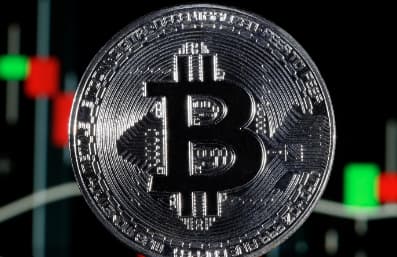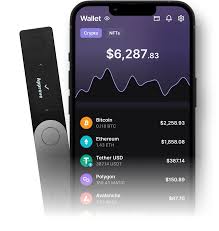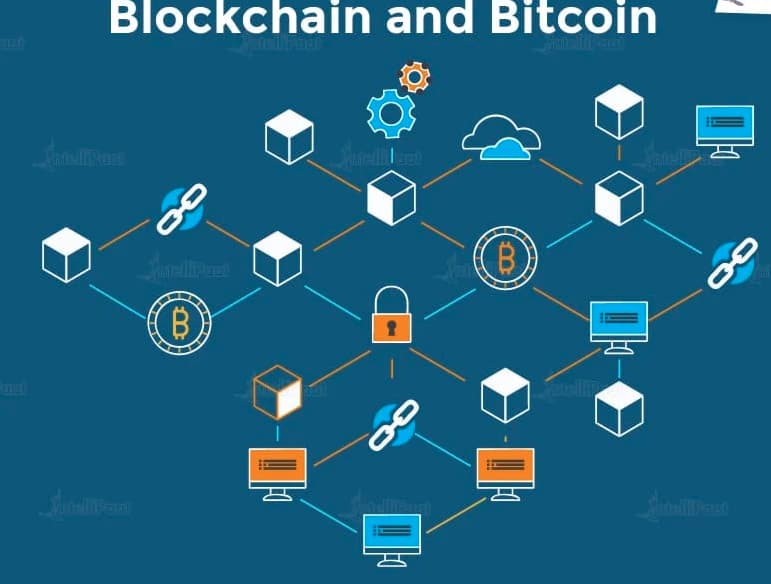What are the Bitcoins?
Bitcoin, a decentralized digital currency, was established to establish an alternative financial system free from the command of banks or governments. Identified as the original digital currency, it operates on a secure public distributed ledger guided by the Bitcoin ledger, which records all financial transactions. The technology depends on the Bitcoin code and is backed by a network of Bitcoin miners who ensure transactions via a method known as mining, frequently utilizing mining pools for better efficiency.
The currency can be divided into eight decimal places, allowing users to accept Bitcoin in smaller amounts, thereby enhancing its adaptability as a store bitcoin of value. The cost of Bitcoin is recognized for its volatility, which can fluctuate quickly and be impacted by demand, worldwide economics, and regulatory updates. To ensure safety, users can keep Bitcoin in wallets; however, these are not protected by the Securities Investor Protection Corporation (SIPC) as traditional investments are, making security a key issue in the cryptocurrency exchange market.
Background
Bitcoin was launched in 2009 by an unknown inventor known as Satoshi Nakamoto. It has a digital existence and direct access to buyers without any intermediary. Bitcoin allows individuals to accept and send funds immediately without an intermediary. All validating transactions are documented in a digital ledger known as Blockchain, which is secure and evident.
Bitcoin works without any intervention from government authorities, financial institutions, and the monetary system. It can be operated as a choice to fiat currencies that are generally used for investment purposes via digital networks utilizing peer-to-peer transfers that are securely recorded.
This web of networks is considered a Blockchain, an open-source agenda that connects all the transactional histories to secure them from manipulation. Bitcoin creates funds for investors when the market value of assets appreciates. Many things are running behind the scenes in the Bitcoin network, so this clear guide is intended to enhance your comprehension of this digital phenomenon.
How Does Bitcoin Work?
Bitcoin is managed on a decentralized digital ledger known as a blockchain. Blockchain is a web of data collection consisting of units known as blocks that hold details about every transaction, such as the date and time, comprehensive amount, buyer and seller, and unique identifier for each transaction. Entries are linked sequentially in time, forming a digital series of blocks.
Once the block is included in the blockchain, it is visible to everyone wanting to examine it. These records are further available to the public for every cryptocurrency transaction.
Blockchain operates in a decentralized manner, indicating that no single association has control over it. This whole process resembles a Google Doc that gives access to everyone. It isn’t owned by anyone, yet anyone with a link can contribute to it. As various individuals make changes, you will get the updated version every time you access it.
Although the concept that anyone can modify the blockchain may seem unsafe, it is specifically what makes Bitcoin reliable and safe. In order for a transaction block to be incorporated into the Bitcoin blockchain, it requires to be validated by most Bitcoin holders, and the distinct codes that identify users’ wallets and transactions must adhere to the correct encryption format.
The codes through which a transaction block gets registered consist of random digits, which are lengthy and extremely hard to replicate fraudulently. The degree of statistical randomness in blockchain verification codes required for every transaction significantly diminishes the likelihood that anyone can conduct fraudulent Bitcoin transactions.
What Gives Bitcoin Value?
The worth of Bitcoin arises from its distinct features and the strong network effects that develop with increased user adoption. Like gold in history, Bitcoin is prized for its scarcity, longevity, and divisibility. Bitcoin’s supply is restricted to 21 million, and this scarcity boosts its lasting purchasing power, providing a digital version of “hard money.” In contrast to conventional assets, one Bitcoin can be split into 100 million units, known as “sats,” enabling it to meet significant user demand without causing inflation.
Bitcoin’s stability is maintained by a worldwide system of decentralized computers that monitor ownership and protect its blockchain. This vast network safeguards against the loss or modification of records of Bitcoin transactions, reinforcing Bitcoin as a reliable store of value. Additionally, Bitcoin transactions offer excellent portability, allowing users to transfer any sum globally in minutes.
The Bitcoin network has flourished due to quick digital adoption, increasing from no users in 2009 to more than 100 million now. The comfort of confirming transactions on the blockchain and safeguarding assets with private keys via Bitcoin wallets enhances its effectiveness as a secure digital currency. The bitcoin mining process enhances network security, while the electronic cash system for peer transactions diminishes reliance on banks. Collectively, these characteristics and network effects enhance Bitcoin’s worth as a digital asset and currency.
Who Controls Bitcoin?
Bitcoin is a decentralized digital currency, which means that it is not controlled by any one entity or organization. Rather, control is spread throughout a worldwide network of contributors. The Bitcoin network functions on a blockchain system, which is a decentralized ledger that documents every Bitcoin transaction. This decentralized framework allows Bitcoin to function without a central authority, such as a government or bank, to regulate its operations.
The management of Bitcoin is upheld via Bitcoin mining, a procedure in which miners utilize computing power to confirm new transactions and incorporate them into the blockchain. As compensation, they receive newly generated Bitcoin, referred to as the block reward. This distributed validation system enables participants to uphold the network’s integrity jointly.
Although developers design and manage the Bitcoin software that dictates the network’s functioning, modifications to the system occur via a consensus process. This indicates that updates or protocol modifications are executed solely when a majority of network participants, such as miners and node operators, consent. Therefore, the ability to shape Bitcoin’s evolution resides with the users, miners, and developers backing the network rather than a central authority.
Bitcoin blockchain secures every transactional data and makes them permanent, secure, and open to the public to prevent fake or corrupted manipulation. The protocol ensures that Bitcoin is limited and capped to only 21 million Bitcoins being created up until this date. The finite supply combined with the global participation of the network makes Bitcoin a truly decentralized asset.
No single entity (not a miner, not an end-user, and not even the developer) has control over the system — miners, developers, and users collectively defend it. It is this framework that ensures Bitcoin’s independence and protection as a digital currency.
Is Bitcoin Legal?
Some governments accept Bitcoin legally a lot more than others, and therefore the legality of Bitcoin varies significantly between nations. Bitcoin is recognized in some countries as a digital currency or cryptocurrency and is treated as an investment or property. In some countries, it is accepted to have considered real bitcoin payments and multiple methods are available (Japan recognizes Bitcoin and is covered by the Japanese Financial Services Agency). In the US, the IRS classifies Bitcoin as property and therefore it is capital gains obsessed. In parallel, the Securities and Exchange Commission (SEC) regulates Bitcoin-related functions – such as Bitcoin ETFs – to ensure compliance with financial law.
Many countries like China even banned mining and Bitcoin trading over financial stability, esthetic aspects, and whether such digital currency is used for illegal activities.
Overall, the legal status of Bitcoin is still evolving, and with its increasing use comes a growing number of government investigations in many jurisdictions into the appropriate regulatory responses to address these new challenges arising from security, taxation & other potential unlawful uses. While Bitcoin is legal in many countries, the legal and regulatory landscape for it remains a work in progress.
How Does Bitcoin Work For Beginners?
If you are a beginner looking to get involved with Bitcoin basics, the best way to do it is by buying Bitcoin yourself some Bitcoin on a cryptocurrency exchange platform like Coinbase or Binance.
Using a Bitcoin address to send and receive is step one for any beginners on how Bitcoin works, as it needs to be learned first. You can buy or sell bitcoin too, when the price moves in your favor, but do not forget about fees. Just like that, a few dealers allow you to pay in Bitcoin and this enables you to buy with your coins when needed.
The beginners are supposed to undergo all the procedures of account creation for their respective bank account. When you have bought your Bitcoin, make sure you transfer it to a safe Bitcoin wallet. You must be highly aware of the basics of Bitcoin and more knowledgeable about the laws governing it in your country to use it safely in the digital currency.

Bitcoin Keys and Wallets
Bitcoin which is a form of digital currency takes reevaluating private keys to ensure safe transactions. A Bitcoin wallet holds these private keys which makes it possible for users to send Bitcoin as well as receive Bitcoin. You must safeguard your wallet upon the purchase of Bitcoin. Transactions with Bitcoin are captured on the blockchain through a fee system that is circuit-based. Getting to know how Bitcoin works enables a person to safely participate in the payments or the trading of Bitcoin. You can hold Bitcoin in your wallet as long as you want.

The Bitcoin Blockchain
Cryptocurrency blockchain is a decentralized digital ledger that registers every Bitcoin transaction that has ever taken place. It serves as a distributed electronic payment network, making it possible for people to transfer Bitcoin fast and directly without the intercession of a bank or other centralized authority. When you buy Bitcoin or send a transaction, it is recorded in a block and is subsequently placed through a validation process by the miners. The miners use machines with high processing power to solve complex mathematical problems, which in turn, protect the network and eliminate any possibilities of the double spending of Bitcoin. The blockchain provides a crystal clear and immutable record of each and every Bitcoin transaction, which makes a transparent history.

How Does Bitcoin Mining Work?
Bitcoin mining is the action of creating new bitcoins and authenticating network transactions. After accumulating transactions to create a “block,” miners must solve a difficult math problem to add the block to the blockchain, which keeps a public record of every Bitcoin transaction. Once the miners receive a unique number known as the nonce, the entire process is finished. After that, that nonce is appended to the block’s contents, producing a unique hash that meets predetermined requirements.
Miners use high-performance processors called ASICs (Application-specific integrated circuits) to execute all the special calculations. Because mining ensures to verify transactions and then it is securely added to the blockchain, it is essential to preserving Bitcoin’s security. These bitcoins when once listed are subject to a “transaction fee” once they are traded.
Can Bitcoin be Stolen?
Bitcoin theft is possible, however, it typically happens through hacking, fraud, or cyberattacks. Cryptography is what renders Bitcoin secure, but if someone attempts to get their hands on the private keys, they can send the funds to their wallet. Bitcoin is more vulnerable to hacking if it is kept in an unprotected hot wallet (software wallet). For further protection, it is safer to use a cold wallet, often known as a hardware wallet. Because it keeps your private keys offline, it makes them less vulnerable to attackers.
Cryptocurrency exchanges provide another possible danger. The Bitcoin kept on the site may be taken if it is compromised. Once you have purchased Bitcoin, it is recommended that you move it to your wallet.
To protect your Bitcoin, use two-factor authentication, keep your private keys secret, and think about using a reliable, secure exchange or joining a mining pool. Although Bitcoin’s digital decentralization makes counterfeiting more difficult, you still need to exercise caution to safeguard your money.
Pros and Cons of Investing in Bitcoin
| Pros | Cons |
| 1. High Potential for Growth | 1. Volatility |
| 2. Decentralization | 2. Regulatory Uncertainty |
| 3. Store of Value (Digital Gold) | 3. Security Risks |
| 4. Liquidity | 4. Lack of Consumer Protection |
| 5. Portfolio Diversification | 5. Energy Consumption |
| 6. Borderless Transactions | 6. Limited Acceptance |
| 7. Transparency and Security | 7. Long-Term Viability Concerns |
Explanation of Bitcoin Pros
- High Potential for Growth:- Since its launch in 2009, Bitcoin’s price has gone up significantly. Despite its volatility, its track record suggests substantial upside potential, which appeals to long-term investors looking for large returns.
- Decentralisation:- Bitcoin functions on a blockchain, which is a decentralised network that does not require central authority, such as governments or banks. This promotes sovereignty and lowers systemic risk by ensuring decisions and transactions aren’t impacted by central organisation.
- Store of Value (Digital Gold):- Like gold, many investors use Bitcoin as an investment of value and an inflation hedge. It is sometimes seen as a deflationary asset that may hold or appreciate in value over time due to its 21 million coin supply restriction. Store bitcoin networks can be considered as an investment.
- Liquidity:- Bitcoin may be swiftly purchased or sold on several exchanges because of its high liquidity. Unlike more liquid assets like real estate, this makes it simple to enter or exit investments.
- Portfolio Diversification:- Bitcoin is frequently regarded as an alternative asset class that is good for portfolio diversification because it doesn’t have a strong correlation with conventional markets (stocks and bonds). Over time, it might help lower risk and raise rewards.
- Border-less Transactions:- Bitcoin-related transactions that are international and independent of national borders and traditional currencies. This makes it simple for users to move money across borders without being constrained by laws, banking fees, or currency rates.
- Transparency and Security:- Blockchain technology, which is transparent and unchangeable, is used to secure transactions of bitcoin. Because the network is decentralised, it is extremely resistant to fraud and hacking, providing a safe way to store and transfer assets.
Explanation of Bitcoin Cons
- Volatility:- The price of bitcoin can fluctuate significantly in brief intervals. If investors enter the market at the wrong moment or do not time their withdrawals appropriately, this volatility can result in large losses. The price of Bitcoin frequently varies by 10% or more in a single day.
- Regulatory Uncertainty:- In many nations, Bitcoin must contend with ambiguous and changing regulatory frameworks. Government restrictions or outright prohibitions may impact its cost or make it more difficult to utilise. Investor risk may increase as a result of this uncertainty.
- Security Risks:- The platforms and exchanges where Bitcoin is kept or exchanged are vulnerable to hacking, even though the Bitcoin blockchain itself is safe. Exchange breaches have resulted in large losses in the past, and your Bitcoin is permanently lost if you lose your private keys.
- Lack of Consumer Protection:- Bitcoin transactions are irreversible, in contrast to conventional banking or financial institutions. There is no way to get your money back if you make a mistake or become the victim of fraud. For investors, this lack of consumer protection may pose a serious danger.
- Energy Consumption:- Large volumes of electricity are needed for Bitcoin mining in order to process transactions and protect the network. While supporters point out that the network is increasingly dependent on renewable energy sources, others contend that this energy use is unsustainable and detrimental to the environment.
- Limited Acceptance:- Despite its increasing popularity, Bitcoin is still not a commonly used payment method. This restricts use in routine transactions, and its usefulness as money is still limited until more businesses accept Bitcoin.
- Long-Term Viability Concerns:- The long-term viability of Bitcoin has been questioned. Some argue that it may become less effective as a global payment system due to scalability issues (related to transaction prices and speed). Future technological advancements could also jeopardize its security (e.g., quantum computing).
How Does Bitcoin Make Money?
Bitcoin prices vary and generate revenue principally through mining, transactions, and trading, though there are other ways as well. Miners authenticate transactions on the decentralized peer-to-peer network that enables Bitcoin to resolve challenging math problems. This process, referred to as proof of work, permits them to add new blocks to the blockchain and collect benefits in the form of freshly generated bitcoins and transaction fees. These fees are incurred by users who pay miners bitcoin as compensation for their verification and transaction recording. Another component of Bitcoin’s incentive structure is its periodic halving events, which restrict the total amount of new bitcoins generated and impact the entire supply and potential value.
Users can use the cryptocurrency to make extra money to buy or sell Bitcoin on cryptocurrency trading platforms. Investors acquire bitcoin with the hope that its value will go and then subsequently market it to make money. Investors may profit from fluctuations if they time their entry and exit points well, as the market value of Bitcoin fluctuates based on sentiment and demand. Many people also hang onto Bitcoin, expecting its value to rise over time. Bitcoin can also be actively traded on platforms that offer a spot bitcoin ETF or other trading alternatives in order to profit from short-term price swings. Market demand, Bitcoin’s decentralized structure, and the incentives provided by mining and transaction activity all influence its overall worth.
Does Bitcoin Turn Into Cash?
While bitcoin is a digital currency, therefore, it will not directly ‘turn into cash’. Further, it can be unlocked through numerous methods including the abilities of Bitcoin ATMs, or simply buy and sell them on exchanges. Blockchain technology powers Bitcoin’s decentralized digital network. Every transaction has been checked and entered into the ledger. It is not only distributed but also secured and transparent.
Cryptography makes up one of the many components of Bitcoin’s functionality, more so it is used for transmission verification. Miners are responsible for all transactions, and thus secure networks by solving difficult equations. Real Bitcoin miners typically pool their resources to resolve competition and increase their likelihood of successfully confirming a block of transactions.
There are exchanges where users can trade or purchase bitcoin and even convert them into other currencies including cash. Other people would prefer to use Bitcoin directly to buy something from a business that accepts it, thereby contributing to the current economy.
In conclusion, although Bitcoin cannot be swapped for cash directly, it can be converted into fiat currency or utilized for trades by utilizing the protected, decentralized digital components of its blockchain network and the strength of cryptography.
Conclusion
To sum up, Bitcoin represents a groundbreaking transformation in our philosophy on currency and financial dealings. Functioning without any financial institutions, it serves as a decentralized digital currency, delivering an additional option to conventional financial systems. The significance of it comes from its rarity, safety, and impact on a network, which makes it a desirable way to store wealth and possibly protect against inflation. Nonetheless, Bitcoin poses its own difficulties such as instability, legal ambiguity, and risks of security breaches like theft or hacking.
The blockchain, the technology behind Bitcoin, offers a secure and transparent record of all transactions, with mining pools contributing to the network’s security. Despite being complex, Bitcoin has evolved from a niche idea to a widely acknowledged asset with various global applications, ranging from investment possibilities to peer-to-peer transactions.
Even though Bitcoin cannot be exchanged for cash outright, it can be converted into traditional currency through exchanges or utilized to make purchases at businesses that welcome it. The fate of Bitcoin in the future will probably hinge on technological progress, regulatory changes, and increased acceptance as the world increasingly adopts cryptocurrencies. Bitcoin’s decentralized structure and cryptographic protection give it a significant presence in the financial world, demonstrating its strength as a distinct digital asset.
FAQs
How Can Bitcoin Transactions Be Tracked and Verified?
Bitcoin transactions are tracked on the public blockchain, where they are verified by miners through a decentralized process.
What Happens if I Lose My Bitcoin Wallet’s Private Key?
If you lose your private key, you lose access to your Bitcoin permanently, as there’s no way to recover it.
How Does Bitcoin’s Energy Consumption Impact the Environment?
Bitcoin’s energy consumption contributes to environmental concerns, especially when mining relies on non-renewable energy sources.
Is Bitcoin a Good Investment?
Bitcoin can be a good investment for those looking for long-term growth, as it has shown significant potential over the years. However, it’s volatile, so it’s important to research and be prepared for price fluctuations. Always invest based on your financial goals and risk tolerance.

